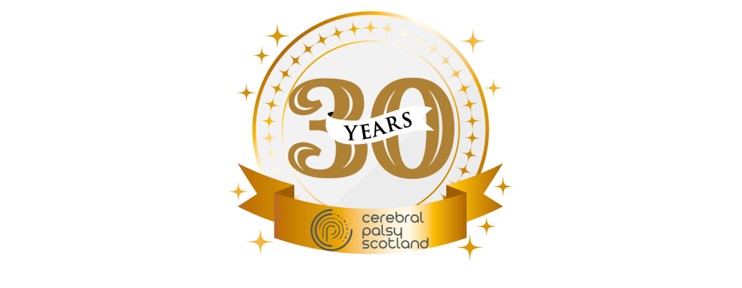I’m writing this blog to mark 30 years of services for people with cerebral palsy in Scotland. The 1st of December 1995 was a special day for children with cerebral palsy. This was when the first ever Scottish Bobath Centre opened at Knightswood Road in Glasgow.
I was there with my parents and family to join everyone at this enormous occasion. My dad, Allan Burns, worked tirelessly to make this day happen. I remember it was a fun day and lots of people were there, including the former First Minister of the Scottish Parliament, Donald Dewar, who officially opened the centre.
The centre was an old clinic and before the building was ready, and I was treated in Knightswood Parish Church hall for my physio sessions. I used to put on my shorts for the sessions, and I remember it was really cold there!
The former school janitor’s house was on the site and was used by families from farther away to stay in while their child was receiving therapy. Now Cerebral Palsy Scotland provides outreach services for children and adults from as far away as Barra and Oban.
There were many different fundraising events from the yearly ball to the bike race. Once when I was about 11, I did a bike ride on a special bike from Elderslie to Paisley with my sister.
Sadly, at the age of 18, like many services for kids with cerebral palsy I couldn’t go there for therapy any longer, and that was a bit of a worrying time for me.
Even though I wasn’t attending Bobath Scotland, they were still providing their services to many children and that was essential, especially for parents.
In time, I went for a few sessions in the Golden Jubilee Hospital with Bobath Scotland, who had temporary accommodation there. I think then they were starting to think about services for adults with cerebral palsy.
In 2009, BoBath Scotland finally moved to their current centre in Port Dundas, and it is a great building for the charity. In 2020, Bobath Scotland changed their name to Cerebral Palsy Scotland.
A few years after they moved to Port Dundas, they started the Helping Hands Scheme for adults with cerebral palsy. They also run children and adult social events and it’s a great way to keep in touch with all the staff and meet friends.
Over the last few years, they have held an annual Cerebral Palsy Day Conference, this year in the Crown Plaza, Glasgow.
The charity has developed amazingly since it started in that old church hall.
Thanks to receiving my therapy over these past 30 years. I can still do some transfers by standing with support and I believe I am able to do a lot more in my life physically.
I wish Cerebral Palsy Scotland all the best in the future.
By Marion Burns




